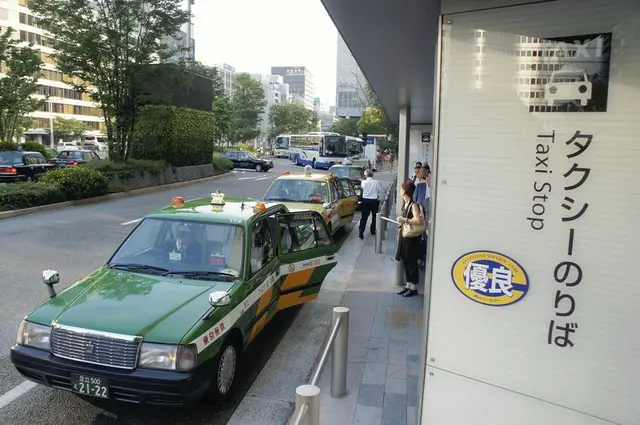The taxi industry is improving its services to prepare for fierce competition with emerging on-demand ride-hailing services and other start-up companies.
Taxi companies in Tokyo have recently submitted an application to the Land, Infrastructure, Transport and Tourism Ministry to allow them to lower the minimum fare. The ministry is now processing the application, which aims to reduce the minimum fare from the current ¥730 to around ¥410, and a new fare could be introduced as early as this year.
Some companies have introduced services targeting children and expectant mothers, and are interacting with customers in multiple languages.
Short rides welcomed
Lowering the minimum fare is aimed at increasing the number of short-ride passengers such as elderly people, families and foreign tourists. Although the minimum fare for the first kilometer or so is normally from ¥500 to less than ¥700 nationwide, the minimum fare in Tokyo is ¥730.
“Customers in Tokyo tend to find it expensive,” a leading taxi company spokesperson said.
Currently, 265 taxi operators in Tokyo have applied for a reduction in the minimum fare and have met the criteria for the ministry’s screening. According to the ministry, most applications suggested that the distance for the starting fare be shortened from two kilometers to around one kilometer, with a minimum fare of ¥410, increasing by increments of ¥80 after the first kilometer.
Looking abroad, the flag drop in New York is set at $2.50 (about ¥250) for the first 320 meters, keeping the minimum fare modest by reducing the distance.
Chairman Ichiro Kawanabe of leading Tokyo taxi operator Nihon Kotsu Co. said, “We hope to increase demand by lowering the base fare.”
Variety of services
Taxi operators in Tokyo will introduce a total of about 10,000 van-type cabs with an environmentally friendly “universal design” by around 2020, the year of the Tokyo Olympics and Paralympics. In light of the growing number of foreign visitors to Japan, drivers are being given conversation lessons in English and other languages, allowing more of them to help foreign customers.
Some taxi companies offer a registration service so mothers-to-be can call a taxi when they go into labor. Others provide pick-up and drop-off services for children traveling to and from day care facilities and cram schools.
Overseas, emerging companies such as U.S. car-hailing company Uber Technologies Inc. have been taking away business from existing taxi operators. Interest in such transportation services, which use private vehicles, is also growing in Japan.
Kyotango municipal government in Kyoto Prefecture has launched a car-hailing service in association with Uber. If deregulation allows new entrants from outside the taxi industry in the future, the cab business will be exposed to fiercer competition.
(THE YOMIURI SHIMBUN)
 简体中文
简体中文



